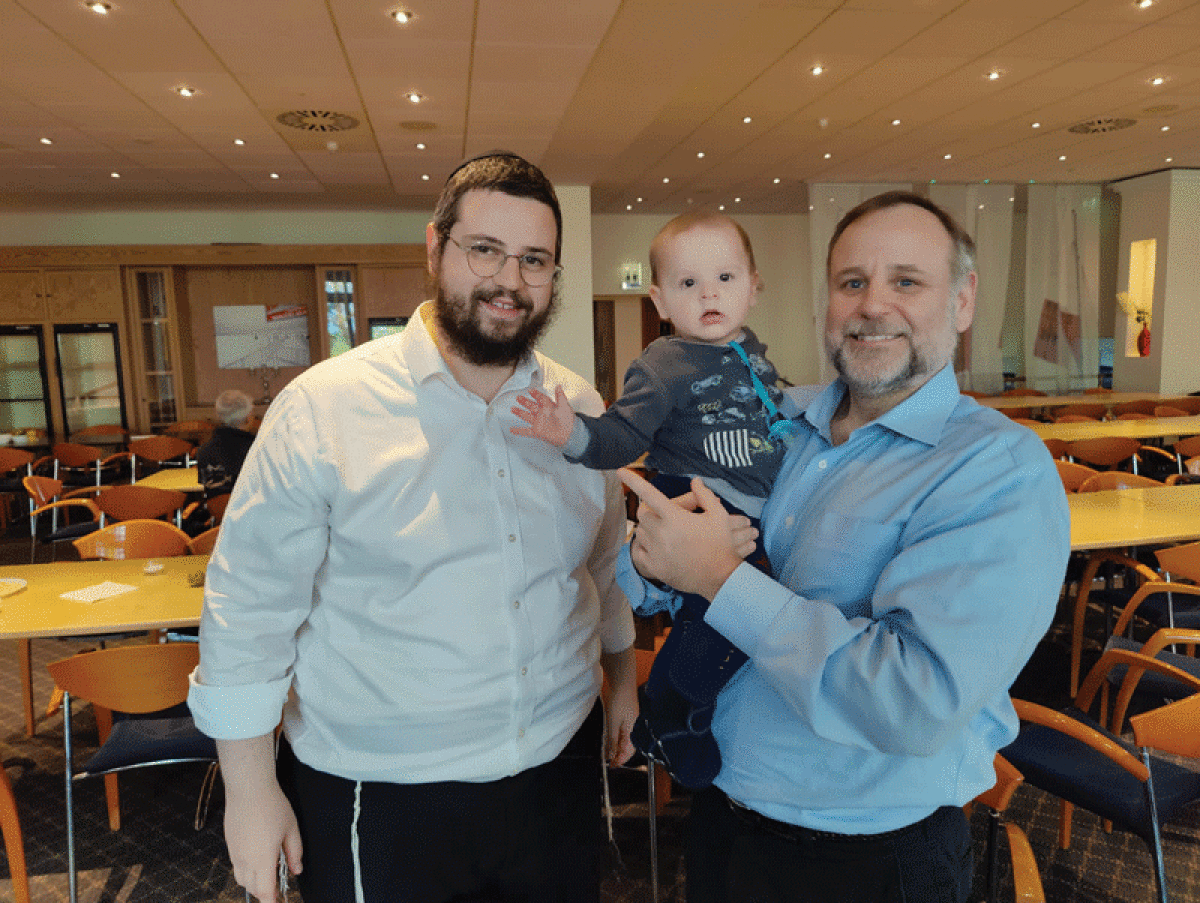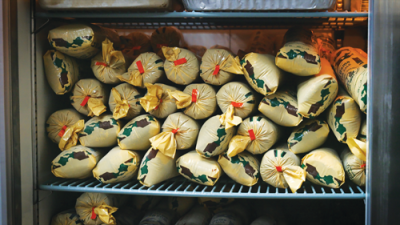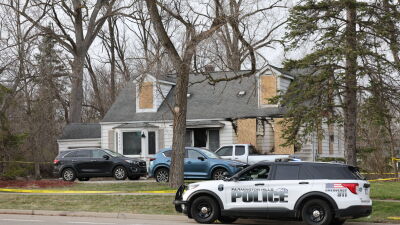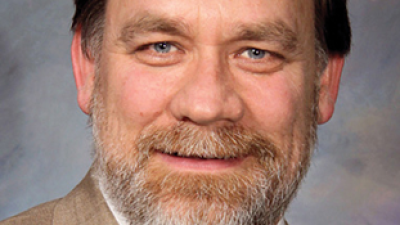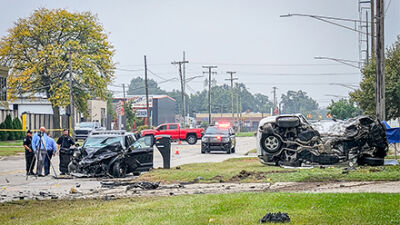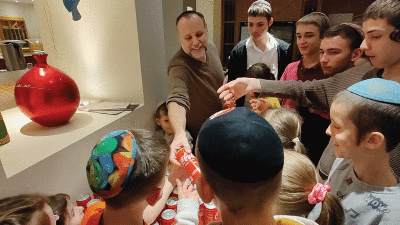
Ethan Gross distributes Cokes to the excited children of the Mishpacha Orphanage of Odesa.
Photo by Ethan Gross
SOUTHFIELD — Many wouldn’t dare enter a war zone, but for Ethan Gross, the CEO of Globe Midwest Adjusters International, visiting Ukraine was vital for him to see firsthand what he could do to help.
As someone who works in the insurance adjusting business, Gross is used to traveling to where devastation has occurred. He saw New York City after 9/11 and New Orleans after Hurricane Katrina.
Gross explained that when visiting a site where a disaster has occurred, even though nothing can lighten the horrible impact, there’s hope in the rebuilding that people see happening around them.
“All that went through my mind watching the war unfold was that it’s like being in a hurricane, but the hurricane never ends,” he said.
It seemed as if all eyes were on Kyiv in the weeks following the Feb. 24 attack, with Ukrainian flags raised in solidarity, donations flowing in and constant news coverage. Yet, less than a year later, Gross expressed that, like COVID-19, Russia’s invasion appears to be old news.
“The reality is in the first couple of weeks or months of the war, this was at the top of the news cycle and top of mind for everybody. But as other things happen, they pop to the top of people’s minds, and this gets forgotten, and yet, there’s still a lot of people suffering, and it’s not getting any better.”
Gross is not Ukrainian, nor did he have any friends or family in Ukraine. That is, not until his sister-in-law connected him with the Jewish Relief Network Ukraine, an organization that has been around for over 30 years, since the fall of the Soviet Union. Through the JRNU, Gross met Judi Garrett, the chief operating officer of the JRNU. He asked Garrett if it wouldn’t be too much of a hindrance if he could visit JRNU sites and see how Americans could help.
Before Gross set out on his weeklong journey, he attended shul, where he met a man collecting funds for a family in Israel in need. The man approached him, and out of his own pocket, gave Gross money honoring a Jewish tradition known as “Shaliach Mitzvah,” which refers to gifting funds to someone traveling so that they will donate the money to a good deed, and angels may guard them on their travels, since they are doing an act of charity.
Sent off with the angels, Gross’s first stop was Berlin, where the Mishpacha Orphanage of Odesa relocated after Russia invaded.
Roughly 200 staff and children were transported from Odesa to Berlin during a 53-hour road trip; a trip that typically takes 20 hours was longer due to all the rules in place, such as buses only being allowed to drive for a few hours at a time. So, from Odesa to Berlin, they stopped at all the Chabad houses they could find along the way. The orphanage then rented out an entire Berlin hotel to house everyone until it is safe for them to return to Odesa.
Nine months later, when Gross visited the orphanage, he found that despite the language barrier, he could connect with the children over his love of magic.
Before he left for Odesa, he asked the young couple running the orphanage if there was anything that he could get for the children. They told him that the children get excited when they get an individual can of Coke. Gross went out and bought hundreds of cans of Coke. He didn’t think much of it on his way to Odesa, where he spent time visiting Chabad-run schools, a senior center and the Chabad of Odesa Synagogue, where JRNU hands out boxes of food every weekday 8 a.m.-5 p.m. Tired from his travels, when Gross returned to Berlin for one night before he departed for Detroit the next morning, the orphanage asked him if he would like to distribute the cans of Coke to the children.
“It was cool, because these kids were so appreciative for just a can of Coke, which here people would take completely for granted. They put it all on at a table, and not one kid took one without me handing it to them. They all waited. They’re just smiling and excited — you’d think I was handing out $1,000 bills.”
On his flight back home, Gross felt a strong sense of melancholy set over him. He wanted to do whatever he could to support and spread awareness for Ukraine. After connecting with various companies and organizations across Detroit, Gross hosted the Detroit-Ukraine Jewish Community Unity Event Dec. 12.
The two-hour event featured speeches from Ody Norkin, the vice president of Michigan Flyer LLC, who detailed his efforts of getting an ambulance to Ukraine for people who cannot travel without laying down; Garrett, who shared more about the history of the organization and a recorded message from Rabbi Mendel Moskovitz, the JRNU ambassador from Kharkiv.
During the event, Garrett expressed that over 50,000 people in Ukraine depend on JRNU alone, and that number is growing.
“Ukrainians are not leaving. It is their home. Men aged 18 to 62 cannot leave. People do not want to choose to leave their fathers, sons, brothers or uncles. Ethan reminds me to remind all of us of the need to ensure that they know they are not forgotten. It might be cold and dark, and they might be scared and tired, but, hopefully, they will know more than ever after tonight that they are not forgotten.”
In an act of solidarity, blue and yellow glow sticks were dispersed for attendees to hold during a video message of unity sent to Ukrainians. The audience proclaimed, in unison, “Razom my syla,” which in Ukrainian means, “Together we are a force.”
For more information on Gross’ travels to Ukraine and his mission, visit his blog at www.d4jrnu.com.
 Publication select ▼
Publication select ▼